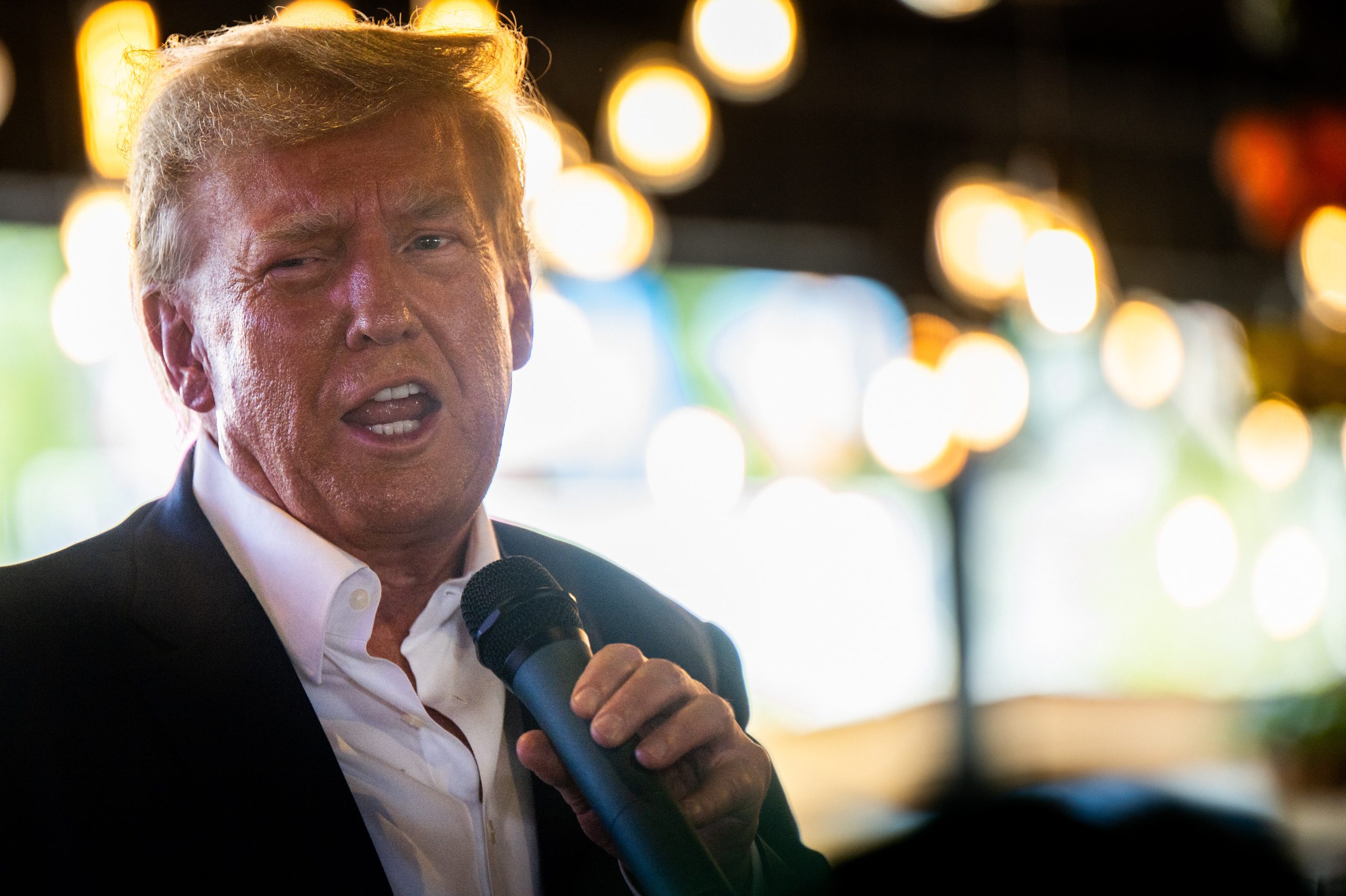Following a court order to pay a staggering $83.3 million for defaming writer E. Jean Carroll—a case for which he had already been directed to pay $5 million—Donald Trump ceased his public accusations against her, evidently heeding the financial consequences.
However, recent actions suggest this deterrent may have lost its efficacy. Over the weekend, the former president resumed his disparagement of Carroll, potentially inviting further legal repercussions.
Speaking at a rally in Georgia on Saturday, Trump contested the judgment, claiming he had posted a $91.6 million bond in response to what he termed a “fake story” fabricated by Carroll. He asserted ignorance of her existence prior to the defamation lawsuit, stating he had no association with her beyond her allegations.
Despite Trump’s denial, a jury had previously determined that he had indeed encountered Carroll and committed acts of sexual abuse against her, leading to the substantial legal penalty.
Donald Trump (Credits: NBC New York)
In another instance on CNBC, Trump referred to Carroll as “Ms. Bergdorf Goodman,” asserting unfamiliarity with her beyond the lawsuit. He reiterated his disbelief at being sued over what he deemed a false accusation, further contesting the validity of the allegations against him.
Carroll remains resolute in her pursuit of justice, expressing her readiness to take legal action against Trump once more. Her attorney, Roberta Kaplan, emphasized their vigilance in monitoring Trump’s statements about Carroll, underscoring the possibility of further legal action within the statute of limitations for defamation cases.
The ongoing legal saga underscores the challenges of holding powerful individuals accountable for their actions, particularly in cases of defamation and sexual assault allegations. Trump’s defiance of legal judgments highlights the complexities and enduring nature of such legal battles.
